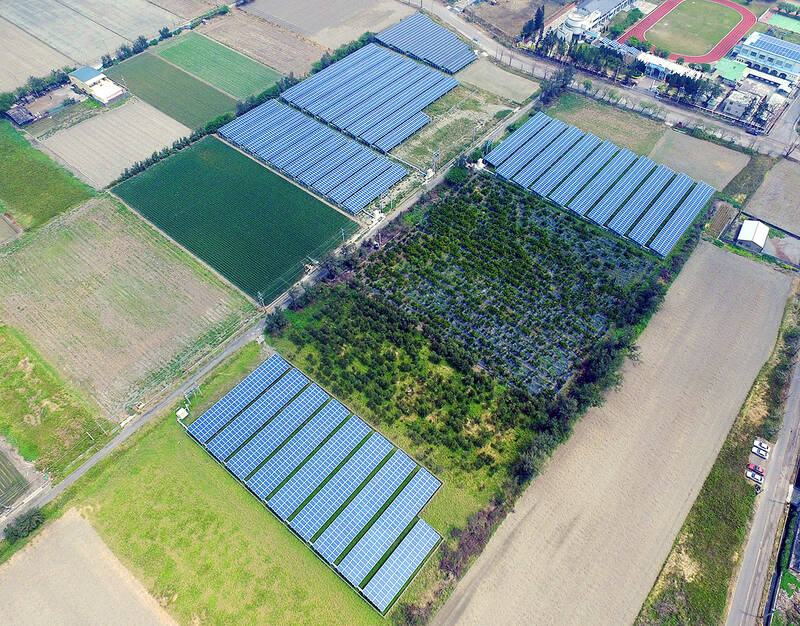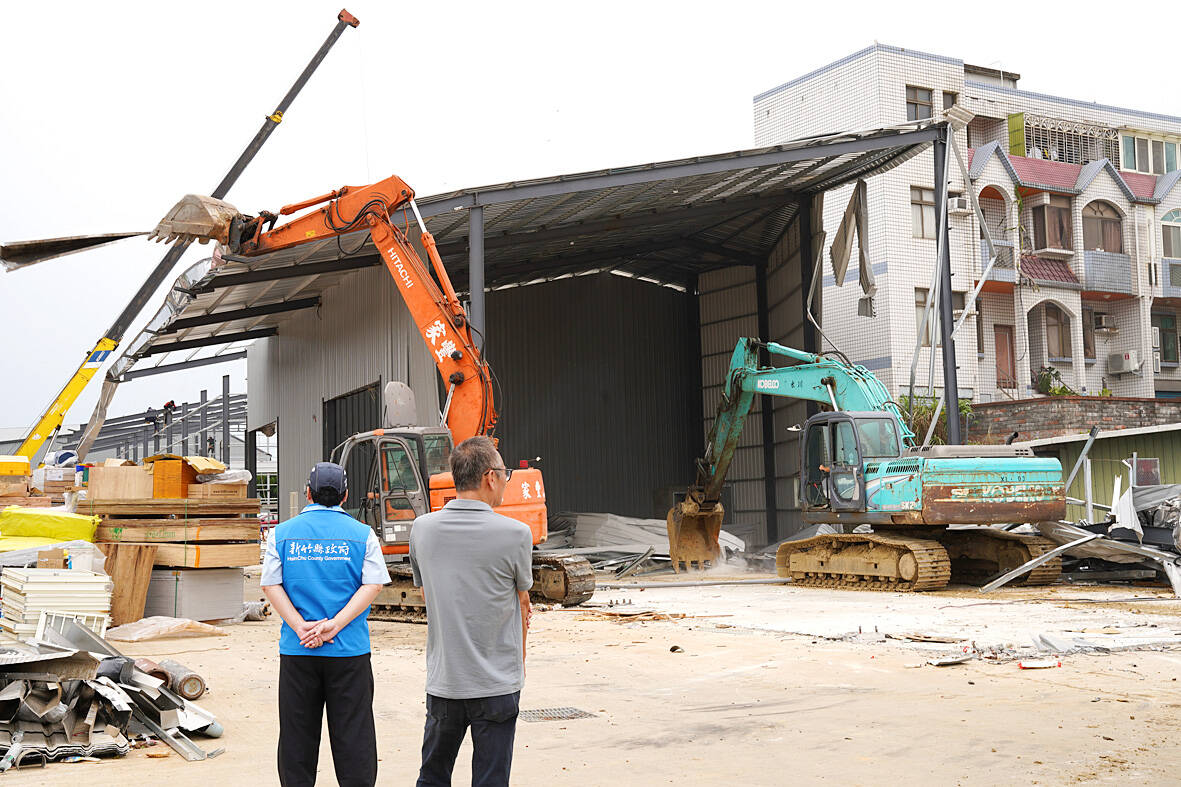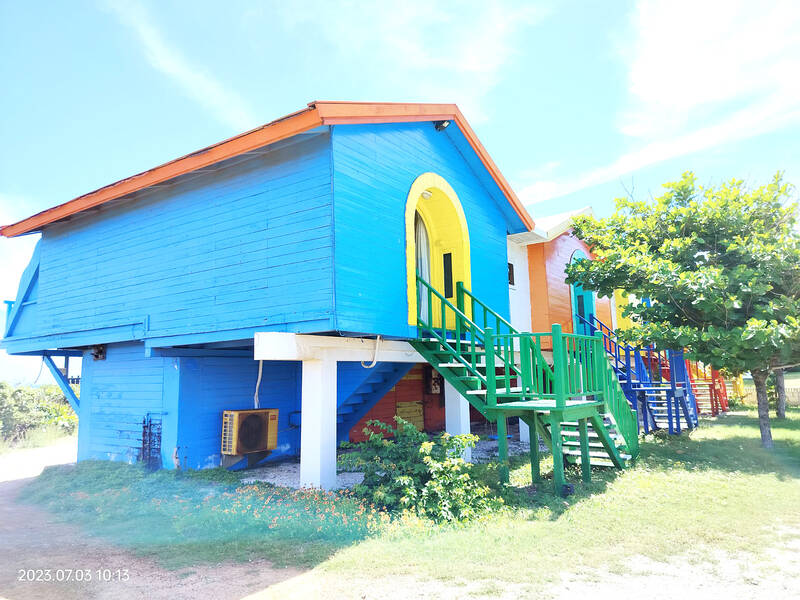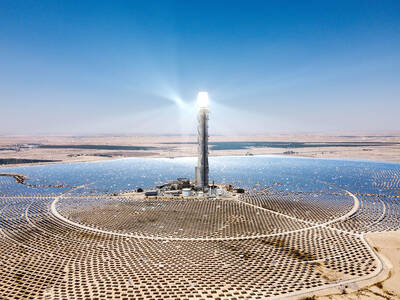A recent report by TaiwanPlus presented a widely believed factoid about solar photovoltaic (PV) power farms: “they take precious land away from agriculture.” Similarly, a Reuters piece from August last year contends that agricultural land in Taiwan is precious and that “there is little room for sprawling wind and solar farms, which take up significantly more space than conventional energy sources.”
Both of Reuters’ claims are false. There is plenty of room in Taiwan for all the renewable energy systems we need. Our problem is not a lack of land, but Taiwan’s crazed land management policies and programs.
An excellent October 2017 piece in AmCham Taiwan by longtime Taiwan hand Timothy Ferry lays out some of the numbers. Ferry writes that an “installed solar capacity of 20GW would likely require 20,000 to 25,000 hectares of land — nearly 3 percent of Taiwan’s total 800,000 hectares of arable land.” That 20GW, the government goal for 2025, represents a significant chunk of Taiwan’s current installed capacity of around 55GW of power from all sources.

Photo: Chang Hui-wen, Taipei Times
FARMLAND DESTRUCTION
Imagine if Reuters had presented another kind of dichotomy, equally false, but more illuminating: solar power competes with illegal factories for agricultural land. After all, the 25,000 hectares cited above is roughly equivalent to the 13,000 hectares of farmland occupied by illegal factories and warehouses in Taiwan, according to a report in this paper in 2017.
Even the illegal factories are only the tip of the spear of farmland conversion in Taiwan. Each year farmland is lost to gravel operations, residences, industrial parks and other structures, all with varying levels of legality. At least those are useful: recall that religious structures occupy thousands of hectares of agricultural land, but no one ever writes that this is a problem, let alone that they compete with solar power.

Photo: Liao Hsueh-ju, Taipei Times
Solar is thus merely a single item among many that may take farmland.
This widespread destruction of Taiwan’s farmland has its roots in the general easygoing illegality of things so prevalent in Taiwan, but it became implicit government policy with Taiwan’s accession to the WTO in 2002. To join, Taiwan was forced to import rice. This compelled the government to let fields lie fallow, up to 50,000 hectares by some estimates. By 2012, this figure had risen to over 200,000 hectares.
In 2018, of Taiwan’s roughly 800,000 hectares of farmland, only 540,000 actually produced a crop. Clearly, in addition to hosting structures, tens of thousands of hectares lie fallow, far more than would ever be needed for solar PV development.

Photo: Liu Yu-ching, Taipei Times
The existence of large acreages of fallow land is an irresistible temptation to land developers.
FALSE TRADEOFF
Taiwan also reduced agricultural subsidies and land planted with corn for animal feed to raise its imports of feeds for the WTO, returning feed production to 1960s levels. Today the island is dependent on imported feed for meat production.
As scholars observed two decades ago, the government’s goal thus shifted from promoting food self-sufficiency to demand-supply balancing. This is important because the conventional idea of a solar-farmland tradeoff is a visceral but primitive dichotomy rooted in the idea of farmland as food security insurance.
Indeed, in July of 2020 the Council of Agriculture (COA), driven to panic by this perception, sent down a drastic new regulation making it illegal to install solar systems on farms smaller than two hectares. The solar PV market in Taiwan took a huge hit.
The truth is that Taiwan now depends on its participation in global trade networks for food security. It cannot supply its own population. Even if all 800,000 hectares were put back into production, Taiwan could not be fed. A solar-food tradeoff thus does not exist, because the amount of food lost to solar PV would be marginal compared to Taiwan’s overall food imports. Ironically, Taiwan Semiconductor Manufacturing Co’s (TSMC) export prowess is probably a more important factor in Taiwan’s food security than all the island’s farmland.
Other government policies and regulatory stances tacitly encourage farmland conversion, legal and illegal. Agricultural land has been untaxed since 1987.
If illegal factories occupy it, they not only pay taxes themselves, but encourage the sprouting of other businesses nearby that also pay taxes, a boon to Taiwan’s perennially strapped local governments. Hence, illegal farmland development is often winked at by local regulators.
Further, the size of farms is slowly falling over time, meaning that farmers find it increasingly difficult to take advantage of scale economies to upgrade technology and management, even as farmers continue to age. It is thus generally more lucrative for aging small farmers to deal for the land than farm it. Government policies to address these issues are largely failures.
THE REAL PROBLEM
Hence, commentary about the alleged competition between solar PV and land obscures the real competition, which has historically been the colonial system of funding Taipei’s development by starving the rest of Taiwan, especially rural areas. Relentless conversion of agricultural land is just fallout from that.
Because agricultural land is not taxed, effectively the government regulates land by zoning it. Both the central and local governments attempt to shape farmers’ crop choices, but this is generally aimed at demand-supply balancing, not food security as such.
Moreover, there are no programs to integrate urban areas into this system, such as a “Victory Garden” program under the rubric of civil defense. Indeed, in many new residential communities, the familiar small gardens in patches of soil and vegetable growing in styrofoam containers are forbidden by neighborhood agreements that seek to make the houses “beautiful.”
Nor does the government appear to base its crop decisions on the quality of the food supply relative to the land used, though that should be a vital issue in food security.
For example, rice remains the dominant starch, but Taiwan could probably obtain more calories from tubers. Concern about food security should also drive questioning of Taiwan’s food processing choices, such as milling nutritious brown rice into white. That has a much greater effect on Taiwan’s available nutrients than solar PV farms.
Presentations in the media too often feed the false idea that solar power consumes farmland in exorbitant quantities (laudably, the TaiwanPlus I cited earlier is about a company working to change that perception).
Such drama has to stop if Taiwan is to meet its renewable energy goals. The real problems lie in the central government’s policies and attitudes toward land and crop management.
After all, harvesting sunlight is a kind of farming, too.
Notes from Central Taiwan is a column written by long-term resident Michael Turton, who provides incisive commentary informed by three decades of living in and writing about his adoptive country. The views expressed here are his own.

Google unveiled an artificial intelligence tool Wednesday that its scientists said would help unravel the mysteries of the human genome — and could one day lead to new treatments for diseases. The deep learning model AlphaGenome was hailed by outside researchers as a “breakthrough” that would let scientists study and even simulate the roots of difficult-to-treat genetic diseases. While the first complete map of the human genome in 2003 “gave us the book of life, reading it remained a challenge,” Pushmeet Kohli, vice president of research at Google DeepMind, told journalists. “We have the text,” he said, which is a sequence of

On a harsh winter afternoon last month, 2,000 protesters marched and chanted slogans such as “CCP out” and “Korea for Koreans” in Seoul’s popular Gangnam District. Participants — mostly students — wore caps printed with the Chinese characters for “exterminate communism” (滅共) and held banners reading “Heaven will destroy the Chinese Communist Party” (天滅中共). During the march, Park Jun-young, the leader of the protest organizer “Free University,” a conservative youth movement, who was on a hunger strike, collapsed after delivering a speech in sub-zero temperatures and was later hospitalized. Several protesters shaved their heads at the end of the demonstration. A

In August of 1949 American journalist Darrell Berrigan toured occupied Formosa and on Aug. 13 published “Should We Grab Formosa?” in the Saturday Evening Post. Berrigan, cataloguing the numerous horrors of corruption and looting the occupying Republic of China (ROC) was inflicting on the locals, advocated outright annexation of Taiwan by the US. He contended the islanders would welcome that. Berrigan also observed that the islanders were planning another revolt, and wrote of their “island nationalism.” The US position on Taiwan was well known there, and islanders, he said, had told him of US official statements that Taiwan had not

We have reached the point where, on any given day, it has become shocking if nothing shocking is happening in the news. This is especially true of Taiwan, which is in the crosshairs of the Chinese Communist Party (CCP), uniquely vulnerable to events happening in the US and Japan and where domestic politics has turned toxic and self-destructive. There are big forces at play far beyond our ability to control them. Feelings of helplessness are no joke and can lead to serious health issues. It should come as no surprise that a Strategic Market Research report is predicting a Compound